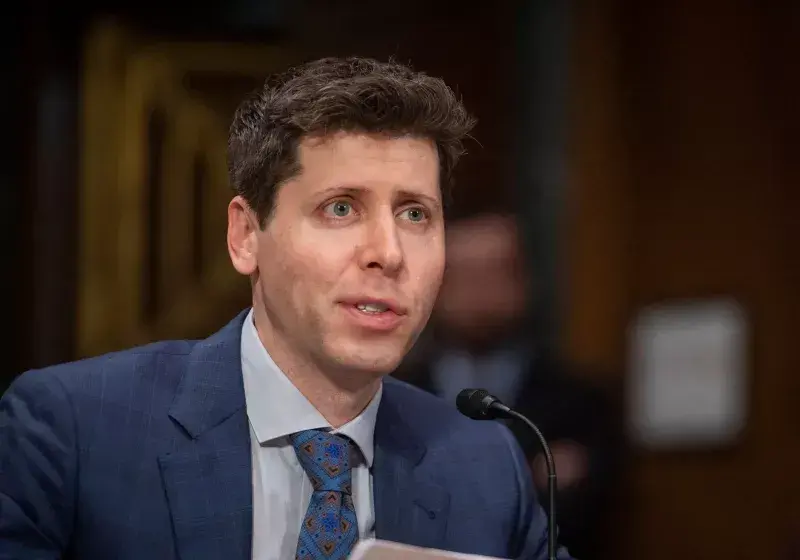Google DeepMind CEO Predicts Human-Level AI Within 5-10 Years, Sparking Debate on AGI Timeline
2 Sources
2 Sources
[1]
AI that can match humans at any task will be here in five to 10 years, Google DeepMind CEO says
LONDON -- Artificial intelligence that can match humans at any task is still some way off -- but it's only a matter of time before it becomes a reality, according to the CEO of Google DeepMind. Speaking at a briefing in DeepMind's London offices on Monday, Demis Hassabis said that he thinks artificial general intelligence (AGI) -- which is as smart or smarter than humans -- will start to emerge in the next five or 10 years. "I think today's systems, they're very passive, but there's still a lot of things they can't do. But I think over the next five to 10 years, a lot of those capabilities will start coming to the fore and we'll start moving towards what we call artificial general intelligence," Hassabis said. Hassabis defined AGI as "a system that's able to exhibit all the complicated capabilities that humans can." "We're not quite there yet. These systems are very impressive at certain things. But there are other things they can't do yet, and we've still got quite a lot of research work to go before that," Hassabis said.
[2]
AI that can match humans at any task will be here in five to 10 years, Google DeepMind CEO says
LONDON -- Artificial intelligence that can match humans at any task is still some way off -- but it's only a matter of time before it becomes a reality, according to the CEO of Google DeepMind. Speaking at a briefing in DeepMind's London offices on Monday, Demis Hassabis said that he thinks artificial general intelligence (AGI) -- which is as smart or smarter than humans -- will start to emerge in the next five or 10 years. "I think today's systems, they're very passive, but there's still a lot of things they can't do. But I think over the next five to 10 years, a lot of those capabilities will start coming to the fore and we'll start moving towards what we call artificial general intelligence," Hassabis said. Hassabis defined AGI as "a system that's able to exhibit all the complicated capabilities that humans can." "We're not quite there yet. These systems are very impressive at certain things. But there are other things they can't do yet, and we've still got quite a lot of research work to go before that," Hassabis said. Hassabis isn't alone in suggesting that it'll take a while for AGI to appear. Last year, the CEO of Chinese tech giant Baidu Robin Li said he sees AGI is "more than 10 years away," pushing back on excitable predictions from some of his peers about this breakthrough taking place in a much shorter timeframe. Hassabis' forecast pushes the timeline to reach AGI some way back compared to what his industry peers have been sketching out. Dario Amodei, CEO of AI startup Anthropic, told CNBC at the World Economic Forum in Davos, Switzerland in January that he sees a form of AI that's "better than almost all humans at almost all tasks" emerging in the "next two or three years." Other tech leaders see AGI arriving even sooner. Cisco's Chief Product Officer Jeetu Patel thinks there's a chance we could see an example of AGI emerge as soon as this year. "There's three major phases" to AI, Patel told CNBC in an interview at the Mobile World Congress event in Barcelona earlier this month. "There's the basic AI that we're all experience right now. Then there is artificial general intelligence, where the cognitive capabilities meet those of humans. Then there's what they call superintelligence," Patel said. "I think you will see meaningful evidence of AGI being in play in 2025. We're not talking about years away," he added. "I think superintelligence is, at best, a few years out." Artificial super intelligence, or ASI, is expected to arrive after AGI and surpass human intelligence. However, "no one really knows" when such a breakthrough will happen, Hassabis said Monday. Last year, Tesla CEO Elon Musk predicted that AGI would likely be available by 2026, while OpenAI CEO Sam Altman said such a system could be developed in the "reasonably close-ish future." Hassabis said that the main challenge with achieving artificial general intelligence is getting today's AI systems to a point of understanding context from the real world. While it's been possible to develop systems that can break down problems and complete tasks autonomously in the realm of games -- such as the complex strategy board game Go -- bringing such a technology into the real world is proving harder. "The question is, how fast can we generalize the planning ideas and agentic kind of behaviors, planning and reasoning, and then generalize that over to working in the real world, on top of things like world models -- models that are able to understand the world around us," Hassabis said." "And I think we've made good progress with the world models over the last couple of years," he added. "So now the question is, what's the best way to combine that with these planning algorithms?" Hassabis and Thomas Kurian, CEO of Google's cloud computing division, said that so-called "multi-agent" AI systems are a technological advancement that's gaining a lot of traction behind the scenes. Hassabis said lots of work is being done to get to this stage. One example he referred to is DeepMind's work getting AI agents to figure out how to play the popular strategy game "Starcraft." "We've done a lot of work on that with things like Starcraft game in the past, where you have a society of agents, or a league of agents, and they could be competing, they could be cooperating," DeepMind's chief said. "When you think about agent to agent communication, that's what we're also doing to allow an agent to express itself ... What are your skills? What kind of tools do you use?" Kurian said. "Those are all elements that you need to be able to ask an agent a question, and then once you have that interface, then other agents can communicate with it," he added.
Share
Share
Copy Link
Demis Hassabis, CEO of Google DeepMind, forecasts the emergence of artificial general intelligence (AGI) within the next 5-10 years, contrasting with more optimistic predictions from other tech leaders.

Google DeepMind CEO Predicts AGI Timeline
Demis Hassabis, CEO of Google DeepMind, has made a significant prediction about the future of artificial intelligence (AI). Speaking at a briefing in DeepMind's London offices, Hassabis stated that artificial general intelligence (AGI) – AI systems as smart or smarter than humans – will likely emerge within the next five to ten years
1
2
.Defining AGI and Current Limitations
Hassabis defined AGI as "a system that's able to exhibit all the complicated capabilities that humans can." He acknowledged that while current AI systems are impressive in certain areas, they still have significant limitations. "We're not quite there yet. These systems are very impressive at certain things. But there are other things they can't do yet, and we've still got quite a lot of research work to go before that," Hassabis explained
1
2
.Contrasting Predictions in the Tech Industry
Hassabis' timeline for AGI development contrasts with more optimistic predictions from other tech leaders:
- Dario Amodei, CEO of AI startup Anthropic, suggested AI surpassing humans at most tasks could emerge in the "next two or three years"
2
. - Cisco's Chief Product Officer, Jeetu Patel, believes AGI could appear as soon as 2025
2
. - Tesla CEO Elon Musk predicted AGI availability by 2026
2
. - OpenAI CEO Sam Altman mentioned AGI could be developed in the "reasonably close-ish future"
2
.
However, some leaders align more closely with Hassabis' cautious timeline. Robin Li, CEO of Chinese tech giant Baidu, stated last year that he sees AGI as "more than 10 years away"
2
.Challenges in Achieving AGI
Hassabis highlighted that the main challenge in achieving AGI is developing AI systems that can understand real-world context. While AI has made significant strides in specific domains like game strategy, translating these capabilities to real-world applications proves more challenging
2
.Related Stories
Multi-Agent AI Systems: A Step Towards AGI
Both Hassabis and Thomas Kurian, CEO of Google Cloud, emphasized the importance of "multi-agent" AI systems in progressing towards AGI. These systems involve multiple AI agents working together, either cooperatively or competitively. Hassabis referenced DeepMind's work on the strategy game "Starcraft" as an example of this approach
2
.The Road to Superintelligence
While the focus remains on achieving AGI, the concept of artificial super intelligence (ASI) – AI that surpasses human intelligence – was also discussed. Hassabis admitted that the timeline for ASI development remains uncertain, stating that "no one really knows" when such a breakthrough will occur
2
.As the AI landscape continues to evolve rapidly, the varying predictions from industry leaders highlight the complexity and uncertainty surrounding the development of human-level AI. While excitement builds around the potential of AGI, it's clear that significant challenges remain in bridging the gap between current AI capabilities and true human-like intelligence.
References
Summarized by
Navi
[1]
Related Stories
Demis Hassabis predicts AGI in 5-8 years, sees new golden era transforming medicine and science
12 Feb 2026•Technology

AI experts clash at Davos over when AGI will arrive and reshape the global economy
20 Jan 2026•Technology

Google DeepMind CEO Predicts AGI by 2030, Showcases Advanced AI Projects
22 Apr 2025•Technology

Recent Highlights
1
ByteDance's Seedance 2.0 AI video generator triggers copyright infringement battle with Hollywood
Policy and Regulation

2
Demis Hassabis predicts AGI in 5-8 years, sees new golden era transforming medicine and science
Technology

3
Nvidia and Meta forge massive chip deal as computing power demands reshape AI infrastructure
Technology





